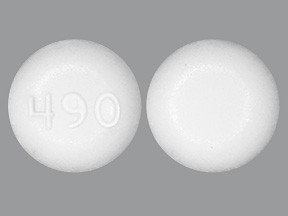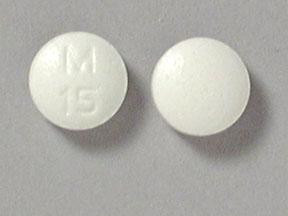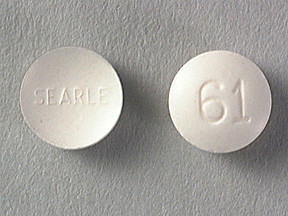DIPHENOXYLATE/ATROPINE - ORAL
PHONETIC PRONUNCIATION: (DYE-fen-OX-i-late/AT-roe-peen)
COMMON BRAND NAME(S): Lomotil
GENERIC NAME(S): diphenoxylate HCl/atropine sulfate
Uses
USES: This medication is used to treat diarrhea. It helps to decrease the number and frequency of bowel movements. It works by slowing the movement of the intestines. Diphenoxylate is similar to narcotic pain relievers, but it acts mainly to slow the gut. Atropine belongs to a class of drugs known as anticholinergics, which help to dry up body fluids and also slow gut movement. This medication should not be used to treat diarrhea caused by certain types of infection (such as Clostridium difficile-associated diarrhea following antibiotic therapy). Talk to your doctor for more details. This medication is not recommended for use in children younger than 6 years due to an increased risk of serious side effects (such as breathing problems).
How to use DIPHENOXYLATE/ATROPINE - ORAL
HOW TO USE: Take this medication by mouth, usually 4 times a day or as directed by your doctor. The dosage is based on your medical condition and response to treatment. In children, the dosage is also based on weight. If you need to continue treatment once your diarrhea is controlled, your doctor may direct you to lower your dosage. Do not increase your dose, take it more often, or use it for longer than prescribed. If you are using the liquid form of this medication, carefully measure the dose using a special measuring device/spoon. Do not use a household spoon because you may not get the correct dose. It is important that you drink the proper amount of fluids and minerals (electrolytes) to prevent loss of body water (dehydration). Tell your doctor right away if you develop signs of dehydration (e.g., extreme thirst, decreased urination, muscle cramps, weakness, fainting). You may also need to change to a bland diet during this time to reduce irritation to your stomach/intestines. Consult your doctor or pharmacist for more information. This medication may cause withdrawal reactions, especially if it has been used regularly for a long time or in high doses. In such cases, withdrawal symptoms (such as stomach cramps, nausea, vomiting) may occur if you suddenly stop using this medication. To prevent withdrawal reactions, your doctor may reduce your dose gradually. Consult your doctor or pharmacist for more details, and report any withdrawal reactions right away. Inform your doctor if your condition does not improve after 2 days.
Side Effects
Precautions
Interactions
Overdose
Images

- color
- white
- shape
- round
- imprint
- 490

- color
- white
- shape
- round
- imprint
- 490

- color
- white
- shape
- round
- imprint
- 490

- color
- white
- shape
- round
- imprint
- 490

- color
- white
- shape
- round
- imprint
- 490

- color
- white
- shape
- round
- imprint
- 490

- color
- white
- shape
- round
- imprint
- M 15
Reviews
Faq for DIPHENOXYLATE/ATROPINE - ORAL
Diphenoxylate/atropine is used to treat diarrhea.
Diphenoxylate works by slowing down the movement of the intestines, while atropine helps to decrease stomach acid production and reduce spasms in the digestive system.
It is generally not recommended to use diphenoxylate/atropine during pregnancy, as it may pose risks to the unborn baby. It is crucial to consult with a healthcare professional before taking this medication.
Diphenoxylate/atropine is usually prescribed for adults and not recommended for children under the age of 2. It is important to follow the dosage instructions provided by a healthcare professional for pediatric patients.
Common side effects include dizziness, drowsiness, constipation, dry mouth, blurred vision, and decreased sweating. Inform your doctor if these side effects persist or worsen.
In rare cases, diphenoxylate/atropine may cause serious side effects such as severe constipation, abdominal pain, bloating, severe dizziness, rapid heartbeat, or difficulty urinating. If any of these symptoms occur, seek immediate medical attention.
Diphenoxylate has a potential for abuse and addiction. It should be used only as directed by a healthcare professional and not be shared with others.
Diphenoxylate/atropine can interact with many other drugs, including alcohol, sedatives, tranquilizers, and certain antidepressants. Inform your doctor about all the medications you are currently taking to avoid any potential interactions.
The medication typically takes about 48 hours to take effect in reducing diarrhea symptoms. If there is no improvement after a few days, consult your doctor.
Disclaimer
IMPORTANT: HOW TO USE THIS INFORMATION: This is a summary and does NOT have all possible information about this product. This information does not assure that this product is safe, effective, or appropriate for you. This information is not individual medical advice and does not substitute for the advice of your health care professional. Always ask your health care professional for complete information about this product and your specific health needs.

No Reviews Yet